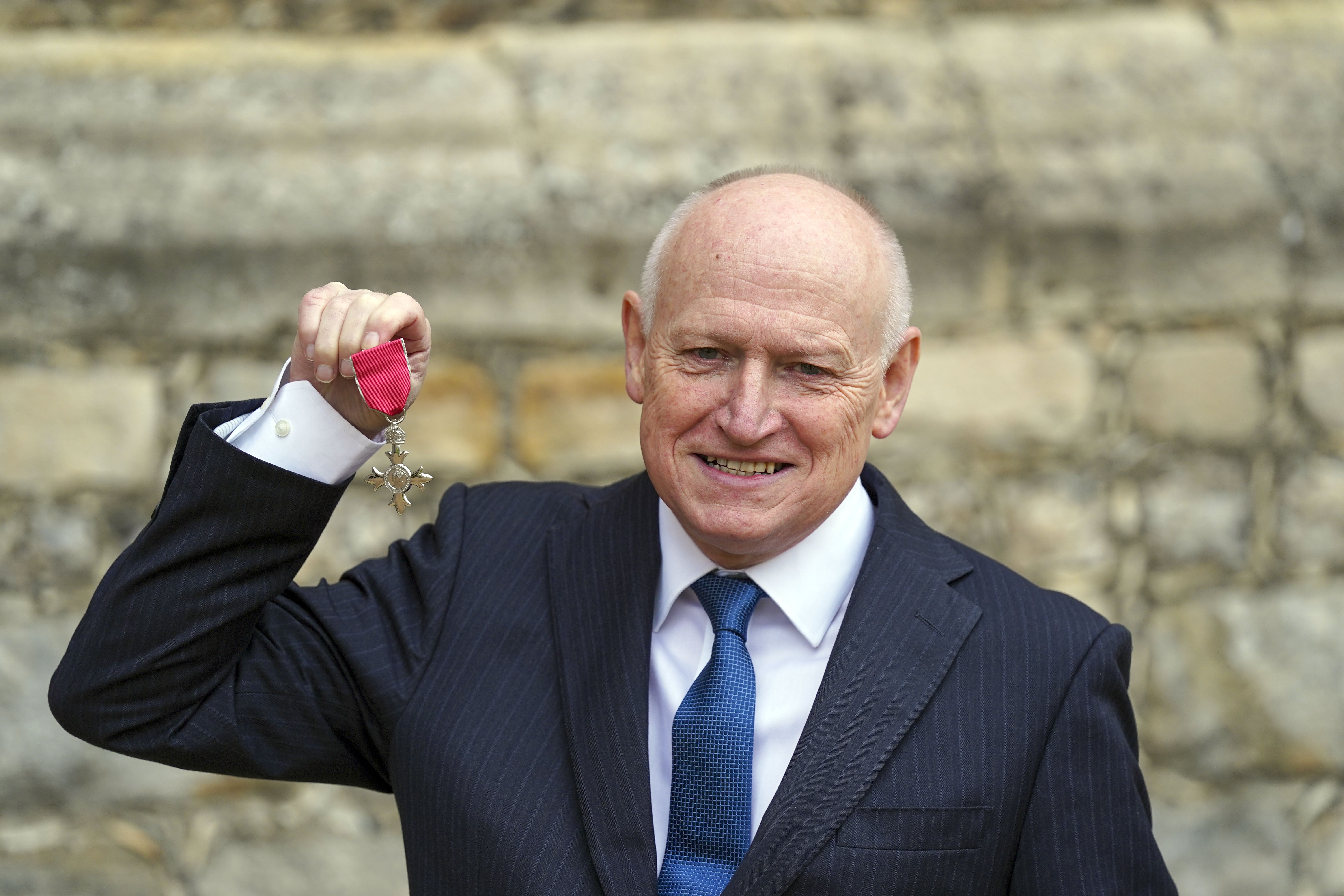Cold case investigator hails DNA advances as he collects royal honour
Peter Beirne is head of Thames Valley Police’s major crime review team.

Your support helps us to tell the story
From reproductive rights to climate change to Big Tech, The Independent is on the ground when the story is developing. Whether it's investigating the financials of Elon Musk's pro-Trump PAC or producing our latest documentary, 'The A Word', which shines a light on the American women fighting for reproductive rights, we know how important it is to parse out the facts from the messaging.
At such a critical moment in US history, we need reporters on the ground. Your donation allows us to keep sending journalists to speak to both sides of the story.
The Independent is trusted by Americans across the entire political spectrum. And unlike many other quality news outlets, we choose not to lock Americans out of our reporting and analysis with paywalls. We believe quality journalism should be available to everyone, paid for by those who can afford it.
Your support makes all the difference.A police chief who helped solve cold cases, including the murders of two teenage girls, has credited advances in DNA testing for the breakthroughs as he was made an MBE.
Peter Beirne, head of Thames Valley Police’s major crime review team, spoke of the “relief” in securing convictions for killers decades after the crimes had been committed.
In 2011, Mr Beirne was one of several officers who traced the 1966 death of 17-year-old Yolande Waddington in Beenham to David Burgess, a convicted double child murderer.
Burgess had already been jailed for life for killing nine-year-old girls Jeanette Wigmore and Jacqueline Williams in 1967.
Developments in forensic science meant officers could send off exhibits for re-examination, which allowed a DNA profile to be obtained matching Burgess, Mr Beirne said.
The advances also helped the same team catch killers including Colin Campbell, who brutally murdered 17-year-old Claire Woolterton and left her body by the River Thames in Windsor in August 1981.
We the police... will never forget a murder, and particularly those that are undetected, and will do all that we can to bring the perpetrators to justice
In 2013, Campbell was convicted of murdering and mutilating Ms Woolterton, who was sexually assaulted and had her throat cut after she went out to meet friends.
Mr Beirne said: “The overriding emotion is one of relief that we managed to get enough evidence so that a jury was satisfied that person was responsible, and relief that the family can finally know that the person responsible has been caught and is going to get the sentence they deserve.”
The officer was speaking after being made an MBE by the Princess Royal in a ceremony at Windsor Castle on Wednesday.
Mr Beirne, who has worked on the team for more than 15 years, added: “All our cases are due to advancements in forensic science.
“It’s a very humbling experience being nominated for an award such as this and it’s not just me, it’s for my whole team.
“The Princess Royal seemed very interested in the work that we’ve done because some of the murders are incredibly old.
“I’ve got to emphasise the fact that despite the fact they’re old, we the police, especially Thames Valley Police, will never forget a murder, and particularly those that are undetected, and will do all that we can to bring the perpetrators to justice.”